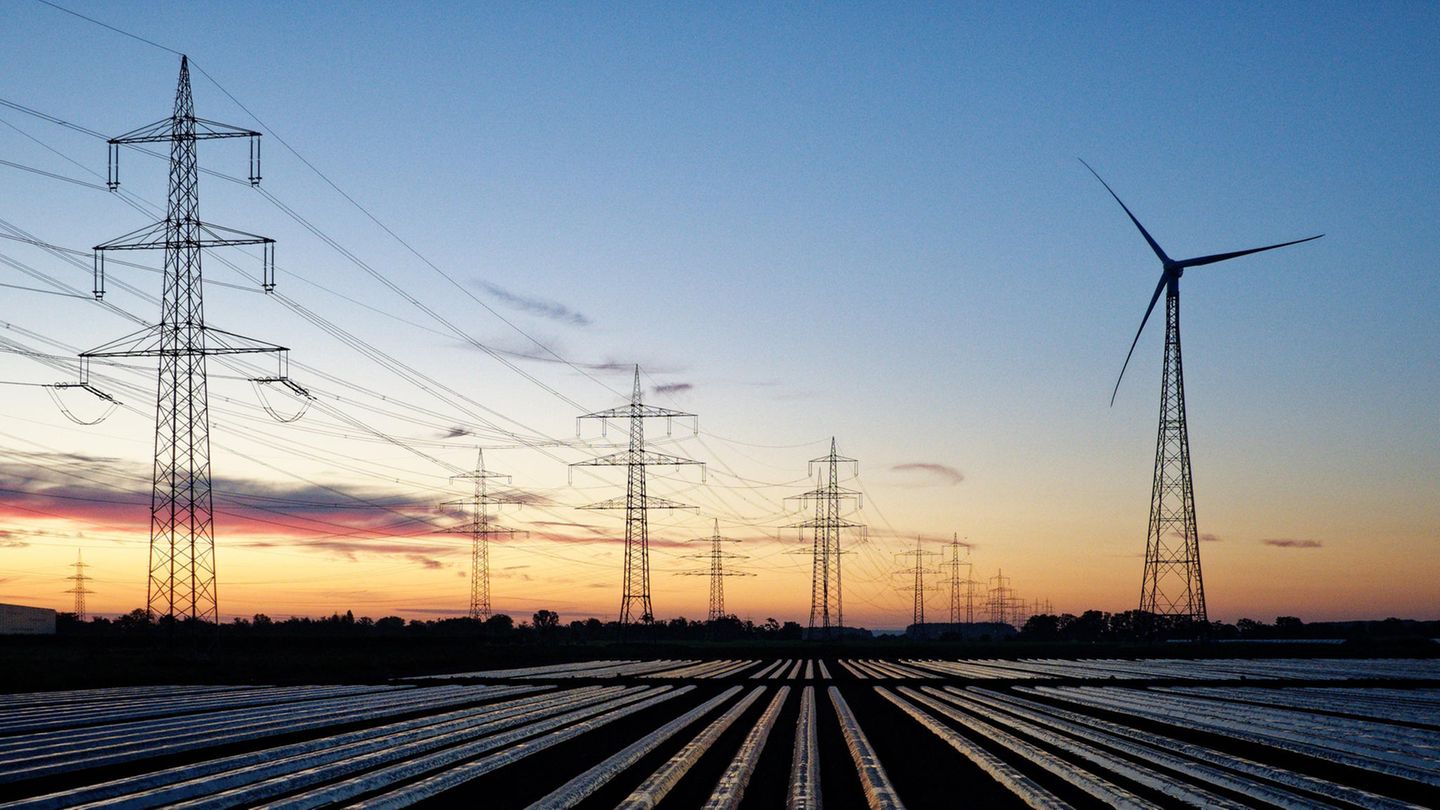The electricity bill has been steep in recent years because of the war in Ukraine. But consumers can now breathe a sigh of relief because relief is in sight. An overview.
Why are electricity prices falling?
The restructuring of the energy networks is expensive, and now the Federal Network Agency wants to reorganize the financing. To achieve this, the costs of expanding the electricity grid will be redistributed next year. The network operators are reducing their fees for this. This is a fee that gas and electricity suppliers have to pay to operators. However, they are passed on to customers via the electricity price, so that consumers pay for them. The fees make up around a quarter of the electricity price. However, the new regulation will make them cheaper, which means that the costs for end customers will fall.
Who benefits?
The energy company Eon, whose distribution network subsidiaries cover around 700,000 kilometers of power lines and thus around a third of the entire German distribution network, expects around ten million households. However, customers in rural regions in particular are likely to expect lower energy prices, especially in the north and east of Germany and in Bavaria.
- Northern Germany: At Schleswig-Holstein Netz, network fees will fall by 27 percent next year – it is responsible for large parts of the northernmost German state, but not for the major cities of Kiel and Lübeck. At other companies, fees are also falling by double digits, for example at the municipal network operator Wemag from Mecklenburg-Western Pomerania.
- East Germany: E.DIS Netz GmbH, which operates in Brandenburg, reduces fees by 20 percent. At Mitnetz mbH from Cottbus, which is also active in East Germany, it is 10 percent cheaper.
- Southern Germany: In Bavaria, Bayernwerk Netz GmbH is down 11 percent and Lechwerke is down 27 percent.
According to the first reports from network operators, the Federal Network Agency assumes that the relief volume will be more than two billion euros.
Who will it be more expensive for?
City dwellers are likely to benefit less from the cost allocation. At some companies the fees are even increasing. The Hessian company Syna is raising prices by five percent, Westnetz from North Rhine-Westphalia by one percent. Both companies belong to Eon. Energy customers who live in their network areas must therefore be prepared for a slight price increase.
Is the new system fair?
To expand the networks, sparsely populated regions with a lot of wind turbines and photovoltaic systems have so far had to pay more than regions with relatively few wind turbines and few solar systems – even though these regions benefited from the influx of electricity. The fact that the rural part of Bavaria, for example, is relieved is because many photovoltaic systems were newly installed there and the networks therefore had to be expanded at great expense.
“In many rural regions of northern and eastern Germany and also in Bavaria, network fees have in the past been significantly higher than the national average,” says network agency boss Klaus Müller. He calls on electricity suppliers to quickly pass on the benefits to end customers.
How are energy providers reacting?
Some providers have already signaled that they want to relieve their customers. The energy company Wemag in Mecklenburg-Western Pomerania, which acts as both a network operator and a supplier, has published an example calculation: An average household with a consumption of 3,500 kilowatt hours will pay 9.47 cents per kilowatt hour in the coming year instead of the previous 15.5 cents – that would be an annual reduction of around 40 percent or 211 euros.
However, providers are not obliged to pass on the reduction in network fees to end customers as a lower price.
What happens if the discount doesn’t apply?
Then customers should change suppliers, advises Federal Network Agency boss Müller. Because of competition on the market, the relief will reach electricity customers sooner or later.
Source: Stern




